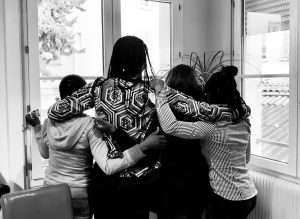 JULY 2, 2019- LONDON, UK-This week, the United Kingdom’s Home Office released a Country Policy and Information Note on “Nigeria: Trafficking of Nigeria.” The Note is intended to provide country of origin information as well as an analysis of the country of origin “for use by Home Office decision makers handling particular types of protection and human rights claims.”
JULY 2, 2019- LONDON, UK-This week, the United Kingdom’s Home Office released a Country Policy and Information Note on “Nigeria: Trafficking of Nigeria.” The Note is intended to provide country of origin information as well as an analysis of the country of origin “for use by Home Office decision makers handling particular types of protection and human rights claims.”
The ‘Assessment’ section of the Note analyses the available evidence, the laws and policies as well as any available case law in an effort to provide an assessment, in general, on whether:
- a person is reasonably likely to face a real risk of persecution or serious harm;
- a person is able to obtain protection from the state (or quasi state bodies);
- a person is reasonably able to relocate within a country or territory;
- Claims are likely to justify granting asylum, humanitarian protection or other form of leave; and
- If a claim is refused, it is likely or unlikely to be certifiable as ‘clearly unfounded’ under section 94 of the Nationality, immigration and Asylum Act 2002.
Decision makers are urged, notwithstanding the foregoing, to consider each matter on a case by case basis, assessing independent facts.
The Note outlines, accurately, how potential victims are recruited from Nigeria, including a reference to the (juju) oath taking process, which was banned by the Oba of Benin in March 2018. It also outlines the debt bondage victims face upon arrival in Europe. The legal and policy positions of both Nigeria and the UK are noted, in addition to outlining the National Referral Mechanisms of both countries.
The Note then goes on to address the reality of victims of trafficking upon their return to Nigeria. Although the report notes that cases differ, there is a broad conclusion that “trafficked women who return from Europe, wealthy from prostitution, enjoy high social-economic status and in general are not subject to negative social attitudes on return. They are often held in high regard because they have improved income prospects.” The Note further adds that repatriating trafficking victims are “unlikely to be at risk of reprisal or being re-trafficked from her original traffickers,” but acknowledges they may be at risk of abuse or being re-trafficked depending on their particular vulnerability. It is these generally erroneous conclusions that triggered heavy criticism from the Nigeria’s Anti-Trafficking Agency (NAPTIP), some UK politicians, human rights lawyers, and nongovernmental groups, some of whom called for an apology from the Home Office.
In light of our experience at Pathfinders working with survivors, we also informed the Home Office (via various Tweets and in an email) that none of the 250+ repatriating survivors that we have partnered with on their restorative journey note prosperity (“wealthy from prostitution”) and clout (“enjoy high social-economic status”) as part of their narrative or reality. On the contrary, we personally assist them in walking through homelessness, hopelessness, medical and psychiatric concerns resulting from trauma, unwanted pregnancies, and the reality of no path towards sustainable economic independence. In fact, many return to the same exact conditions (and to the same families) that rendered them vulnerable in the first place. Without intervention, the chances of retrafficking are extremely high, particularly since a considerable number face reprisals and are afraid for their lives since they never fully repaid their debts.


Recent Comments